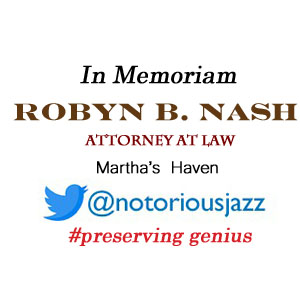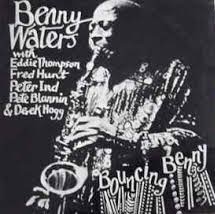
Daily Dose Of Jazz…
Derek Hogg was born April 8, 1928 in Oldham, England and started playing early in his career with marching bands. He began working in professional ensembles in the Fifties, including those of Freddy Randall, Don Rendell, Joe Saye, Ken Moule, Buddy Featherstonhaugh, Kenny Baker, Sandy Brown and Al Fairweather’s All Stars group.
He played with Vic Lewis in 1959-1960, then with The Squadronaires and Dudley Moore in the first few years of the decade. In 1962 he began working with Danny Moss, with whom he would continue to perform until the end of his career. Hogg went on to perform with Rosemary Clooney, Tony Coe, Digby Fairweather, Budd Johnson, Colin Purbrook, Benny Waters and Teddy Wilson.
Drummer Derek Hogg retired from active performance in 1987.
Confer a dose of an Oldham drummer to those seeking a greater insight about the musicians around the world who are members of the pantheon of jazz…
Derek Hogg: 1928 | DrumsMore Posts: drums,history,instrumental,jazz,music
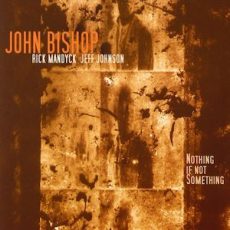
Daily Dose Of Jazz…
John Bishop was born on April 5, 1959 in Seattle, Washington and raised in Germany, Washington, D.C., San Antonio, Texas, and Eugene, Oregon. He started playing drums at the age of seven with the Patriots drum corp. Through high school and college he performed regularly and studied with Mel Brown and Charles Dowd at the University of Oregon prior to transferring to North Texas State University. A move back to Seattle in 1981 he played an extended engagement with Glider and never left.
The early Eighties saw Bishop as a member of the fusion group Blue Sky and for 20 years was a member of New Stories with pianist Marc Seales and bassist Doug Miller. They had four CDs of their own, six with the late be-bop saxophonist Don Lanphere, and a Grammy nominated recording with Mark Murphy, among others. They were a house trio for 17 years at Bud Shank’s Pt. Townsend Jazz Festival.
In 1997 John started the jazz label Origin Records, which was later named Jazzweek’s 2009 Label Of The Year, and OriginArts, a graphic design & CD production company, to help further the exposure of creative artists and their music. In partnership with his ex-drum student, Matt Jorgensen, and released over 750 recordings by 370 artists from around the world. 2003 saw them begin Seattle’s annual 4-day Ballard Jazz FestivalIn 2002 they added another jazz label, OA2 Records, a classical imprint, Origin Classical in 2008. Bishop has designed over eight hundred recording packages and multiple book covers, banners, posters, and other graphics for clients around the globe.
He has taught drums privately for 40 years, was on the faculty at the University of Washington from 2005-2009, and is presently adjunct at the Cornish College of the Arts. He regularly does drum and jazz workshops throughout the country, often with Hal Galper, including at the University of North Texas, University of Indiana, Dartmouth, Cal Arts, The New School, Purchase Conservatory-NYC, William Paterson University, University of Louisville, San Jose State University, The Jazz School- Berkeley, and Kent State University, to name a few.
He’s appeared on more than a hundred albums, and was inducted into the Seattle Jazz Hall of Fame in 2008, and named a Jazz Hero by the Jazz Journalists Association in 2019. Drummer and record producer John Bishop continues to pursue his endeavors in the industry.
More Posts: drums,history,instrumental,jazz,music,record producer
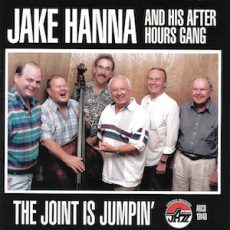
Daily Dose Of Jazz…
Jake Hanna was born in Roxbury, Massachusetts on April 4, 1931 and first performed in Boston, Massachusetts. He was the house drummer at Storyville nightclub in Boston, Massachusetts for a number of years in the 1950s and 1960s. Through the decades beginning in the late Fifties he played with Toshiko Akiyoshi, Maynard Ferguson, Marian McPartland, and Woody Herman’s Orchestra.
He appeared with the Mort Lindsey Orchestra on Judy Garland’s multi Grammy Award-winning 1961 live album, Judy at Carnegie Hall. He did extensive work as a studio musician both in and out of jazz, including an eleven year period from 1964 to 1975 as the drummer for the big band of the Merv Griffin Show. Jake recorded several albums with Carl Fontana for Concord Jazz in the mid-1970s and also played in Supersax. Later in his career he did much work as a sideman for Concord.
Drummer Jake Hanna transitioned from complications from blood disease on February 12, 2010 in Los Angeles, California at the age of 78.
More Posts: drums,history,instrumental,jazz,music
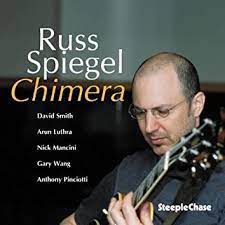
Daily Dose Of Jazz…
Russ Spiegel was born March 30, 1962 in Los Angeles, California, and raised in Santa Monica, California. His family was musical as he has an older sister who plays the bluegrass fiddle, a pianist and composer brother and a father who is an avid amateur jazz trumpeter.
A fan of pop radio as a youngster, Russ discovered rock music as he entered his teens. Picking up the electric guitar he took lessons at a local music store, eventually buying a Fender Stratocaster. He started jamming with area musicians, which led to forming a rock cover band. Finishing high school in Frankfurt, Germany he enrolled in the University of Maryland that had a campus in Munich, Germany. While there, he formed a progressive-rock band, joined a local R&B and soul unit, and began learning jazz standards. In 1982 Spiegel returned to the U.S. to complete his bachelor’s degree at the University of Michigan, in Ann Arbor, earning a degree in philosophy.
In 1986 had Spiegel in Boston, Massachusetts on scholarship at Berklee College of Music. Upon completion of his studies, he relocated to Germany in 1988 where he gradually made contacts in the music world. He began playing on military bases and at local jazz clubs and festivals. During a stint in Paris, France he formed a quartet called Guitar Hell, which toured widely in France and Germany. He soon found himself in demand as a guitarist and electric bassist with various European big bands, jazz ensembles, and blues groups.
Around the same time, Russ joined the band of German jazz organist Barbara Dennerlein and toured Europe with her before receiving the coveted Jazz Scholarship by the city of Frankfurt for his contributions to the city’s artistic scene.
In 2001 Spiegel returned to the U.S. settled in New York City and studied under teachers Adam Rogers, Paul Bollenback, Ben Monder and John Patitucci, receiving his master’s degree in jazz performance from the City College of New York.
In 2008 his Jazz/North Indian classical fusion ensemble, Sundar Shor, undertook a tour of India under the auspices of the American Center, and it has toured widely in Europe as well. Guitarist Russ Spiegel continues to perform and record.
More Posts: bandleader,guitar,history,instrumental,jazz,music
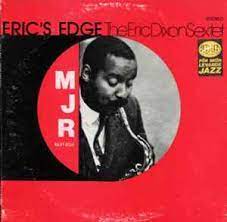
Daily Dose Of Jazz…
Eric “Big Daddy” Dixon was born on March 28, 1930 in New York City, New York. Although he played bugle as a child,he switched to the tenor saxophone at the age of 12. Following a stint as a musician in the US Army from 1951 to 1953 he played in groups that sometimes included Mal Waldron, with whom he would later record.
In 1954, he played with Cootie Williams and the following year with Johnny Hodges. In 1956, he performed and recorded with Bennie Green and also took up the flute.
The late Fifties had him spending four years in the house band led by Reuben Phillips at the Apollo Theatre in New York. At the end of the decade he toured Europe and recorded with the Cooper Brothers.
He also worked with Paul Gonsalves, Ahmed Abdul-Malik, Oliver Nelson, Quincy Jones, Jack McDuff, Joe Williams, Frank Foster, and Eddie “Lockjaw” Davis, but is probably best known for his tenure in Count Basie’s band, which lasted almost two decades. Dixon continued to play in the ghost band after Basie’s death.
Tenor saxophonist, flautist, composer, and arranger Eric Dixon, who has been credited on as many as 200 recordings, transitioned on October 19, 1989 in New York City.
More Posts: arranger,composer,flute,history,instrumental,jazz,music,saxophone


